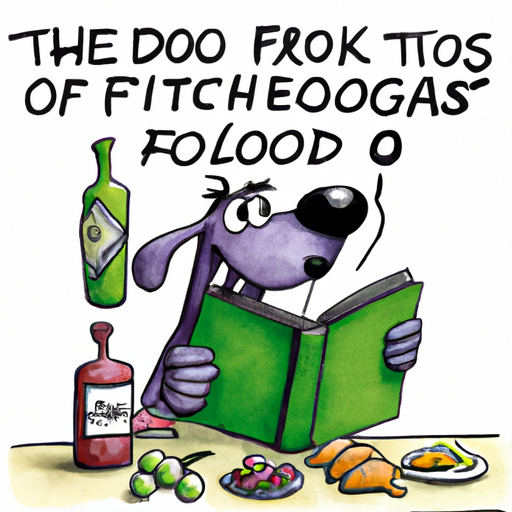As caregivers for our furry friends, it’s our responsibility to ensure they have the best quality of life. This includes providing them with a balanced diet that maintains their health and well-being. However, not all foods are suitable for dogs. Some foods we consider harmless or even healthy, can be toxic and potentially life-threatening for our canine companions.
Key Takeaways
- Understanding the foods that are toxic to dogs is vital for their overall health.
- Common foods like chocolate, grapes, and certain artificial sweeteners can be deadly for dogs.
- Recognizing symptoms of food poisoning in dogs can help you act swiftly and save your pet’s life.
Table of Contents
- Toxic Foods for Dogs
- Recognizing Symptoms of Food Poisoning
- What to Do If Your Dog Ingests a Toxic Food
- Preventing Accidental Ingestion
- Frequently Asked Questions
Toxic Foods for Dogs
There are several foods that humans enjoy, which are toxic to dogs. Some of these include:
- Chocolate: Contains theobromine, a stimulant that can cause heart problems, seizures and in extreme cases, death.
- Grapes and Raisins: Can cause kidney failure even in small amounts.
- Onions and Garlic: These can cause anemia by destroying the dog’s red blood cells.
- Alcohol: Causes vomiting, disorientation, high body temperature, and can lead to seizures or respiratory failure.
- Caffeine: Similar to chocolate, it contains stimulants that are harmful to dogs.
- Xylitol: This artificial sweetener found in many sugar-free products can cause rapid insulin release leading to hypoglycemia (low blood sugar).
Here’s a handy table summarizing these toxic foods:
| Toxic Food | Effect on Dogs |
|---|---|
| Chocolate | Can cause heart problems, seizures, and death |
| Grapes and Raisins | Can cause kidney failure |
| Onions and Garlic | Can cause anemia |
| Alcohol | Can cause vomiting, disorientation, and respiratory failure |
| Caffeine | Can cause harmful stimulations |
| Xylitol | Can cause hypoglycemia |
Recognizing Symptoms of Food Poisoning
Recognizing the signs of food poisoning in your dog can be the difference between life and death. Symptoms can vary depending on the type of toxic food ingested, but common signs include:
- Vomiting
- Diarrhea
- Lethargy
- Loss of coordination
- Seizures
If you notice your dog exhibiting any of these symptoms, especially after ingesting a potentially toxic food, it’s vital to seek immediate veterinary care.
What to Do If Your Dog Ingests a Toxic Food
If you suspect your dog has ingested a toxic food, the first step is to remain calm. Panicking won’t help the situation and could potentially distress your dog further.
Next, try to determine what your dog has eaten. If possible, gather up any remaining food and packaging. This can be helpful for the vet to determine the best course of action.
Do not attempt to induce vomiting unless explicitly instructed to do so by a professional. Some toxins can cause more damage if the dog vomits.
Finally, seek immediate veterinary attention. Pet Poison Helpline can provide guidance and connect you to a local vet.
Preventing Accidental Ingestion
Prevention is the best way to protect your dog from ingesting toxic foods. Here are a few steps you can take:
- Store food securely: Ensure toxic foods are stored in a place your dog can’t access.
- Educate your household: Make sure everyone in your household, including children, understand what foods are toxic to dogs.
- Be cautious with new foods: Before introducing a new food into your dog’s diet, check that it’s safe. Websites like OneTopDog provide comprehensive information on dog-safe foods.
Frequently Asked Questions
Q: Is cheese bad for dogs?
A: While not toxic, cheese can be high in fat and lead to obesity and other health problems if fed in large quantities. Some dogs might also be lactose intolerant.
Q: Can dogs eat peanut butter?
A: Yes, most dogs can eat peanut butter. However, ensure it doesn’t contain Xylitol, a sweetener that is toxic to dogs.
Q: Can dogs eat apples?
A: Yes, apples are safe for dogs. However, the seeds and core should be removed as they can pose a choking hazard.
Remember, as a caregiver, you play a crucial role in your dog’s health and well-being. Stay educated and vigilant to prevent your dog from consuming toxic foods.



